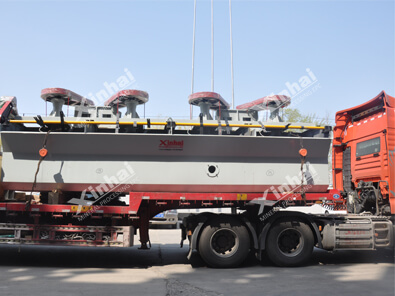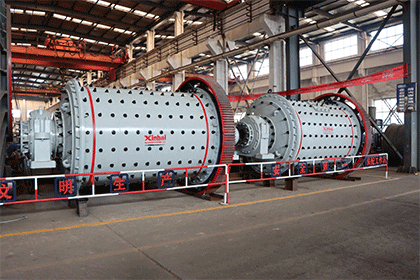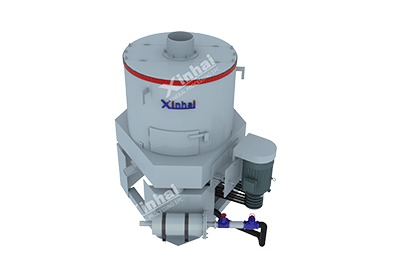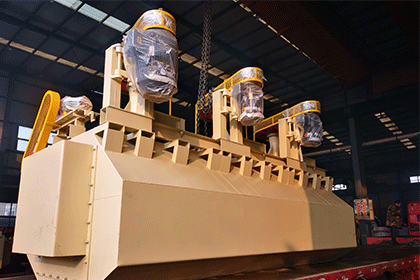Gold Tailings Reprocessing: A Comprehensive Guide for Investors
 Laura
Laura
 Aug 20, 2024
Aug 20, 2024
 599
599
If you want to know more details about equipment, solutions, etc, please click the button below for free consultation, or leave your requirements!
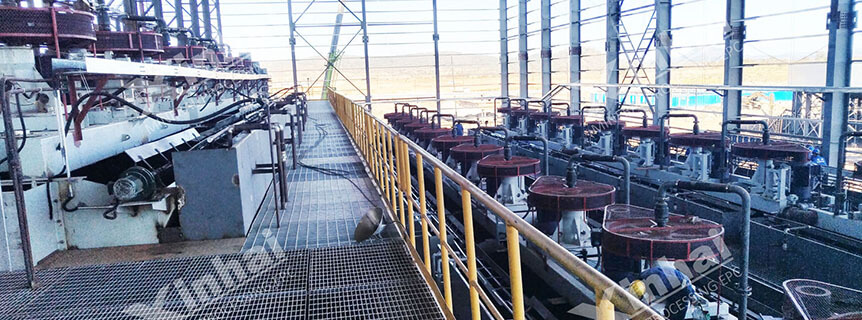
Flotation cells in the mineral processing plant
As the global demand for gold continues to rise, the mining industry is constantly seeking innovative ways to extract value from previously mined materials. One area that has garnered significant attention in recent years is gold tailings reprocessing. This process involves recovering gold and other valuable minerals from the waste products generated during the mining process. In this comprehensive guide, we will explore the concept of gold tailings reprocessing, its benefits, challenges, and the potential it holds for miners and investors alike.
01Understanding Gold Tailings
BackGold tailings are the residues left behind after the extraction of gold from ore. These materials, which can be composed of finely ground rock, water, and chemicals used in the extraction process, often contain traces of gold and other valuable metals. Historically, mining operations focused on the extraction of high-grade ore, leaving behind significant quantities of lower-grade materials that were deemed uneconomical to process at the time. However, advancements in technology and changes in market conditions have made tailings reprocessing a viable option for recovering additional gold from these waste materials.
02The Importance of Tailings Reprocessing
Back1. Environmental Benefits
One of the primary advantages of gold tailings reprocessing is its potential to reduce environmental impacts associated with mining. Traditional mining operations often leave behind large tailings ponds that can pose risks to local ecosystems and communities. By reprocessing these tailings, miners can mitigate the environmental footprint of their operations, reduce the need for new mining, and contribute to a more sustainable approach to resource extraction.
2. Economic Viability
With the price of gold fluctuating and new technologies emerging, reprocessing tailings can present a lucrative opportunity for miners and investors. The economic viability of tailings reprocessing has improved due to advancements in extraction techniques, allowing for the recovery of lower-grade ores that were previously considered uneconomical. By tapping into these resources, miners can unlock additional revenue streams and enhance their overall profitability.
3. Resource Efficiency
As gold reserves become scarcer, the mining industry faces increasing pressure to maximize resource efficiency. Reprocessing tailings allows for the recovery of valuable materials that would otherwise go to waste. This not only extends the lifespan of existing mining operations but also contributes to a more circular economy by making better use of available resources.
03The Process of Gold Tailings Reprocessing
BackThe process of reprocessing gold tailings typically involves several key steps.
1. Assessment and Sampling
Before reprocessing can begin, a thorough assessment of the tailings material is necessary. This includes sampling the tailings to determine the concentration of gold and other valuable minerals. Geologists and engineers will analyze the samples to evaluate the economic feasibility of the reprocessing project.
2. Technology Selection
Once the assessment is complete, the next step is to select the appropriate technology for reprocessing the tailings. Various methods exist, including gravity separation, flotation, and cyanidation. The choice of technology will depend on factors such as the composition of the tailings, the desired recovery rates, and environmental considerations.
3. Processing
The selected technology is then applied to the tailings material. This may involve crushing, grinding, and separating the gold from the waste materials. Each method has its advantages and limitations, and the efficiency of the process can vary based on the characteristics of the tailings being processed.
4. Refining and Recovery
After the gold has been extracted from the tailings, it must be refined to achieve the desired purity levels. This can involve additional chemical processes, such as smelting or electrolysis. The final product is then ready for sale in the market.
5. Waste Management
An essential aspect of tailings reprocessing is the management of residual waste materials. Miners must ensure that any remaining waste is disposed of responsibly to minimize environmental impact. This may involve rehabilitating tailings ponds or implementing measures to prevent contamination of local water sources.
04Challenges in Gold Tailings Reprocessing
BackWhile gold tailings reprocessing presents numerous opportunities, it is not without its challenges. Some of the key hurdles include.
1. Regulatory Compliance
Mining operations are subject to strict environmental regulations, and tailings reprocessing projects must adhere to these standards. Navigating the regulatory landscape can be complex and time-consuming, requiring significant investment in permits and environmental assessments.
2. Economic Feasibility
Although advancements in technology have improved the economic viability of tailings reprocessing, the initial investment can still be substantial. Miners and investors must carefully evaluate the costs associated with reprocessing, including equipment, labor, and ongoing operational expenses, to ensure a favorable return on investment.
3. Technical Expertise
Reprocessing tailings requires specialized knowledge and expertise in mineral processing and metallurgy. Miners may need to invest in training or hire skilled personnel to successfully implement reprocessing projects.
4. Market Fluctuations
The profitability of gold tailings reprocessing is closely tied to the price of gold in the market. Fluctuations in gold prices can impact the economic feasibility of reprocessing projects, making it essential for miners and investors to stay informed about market trends.
05Investment Opportunities in Gold Tailings Reprocessing
BackFor investors, gold tailings reprocessing presents a unique opportunity to enter the mining sector with potentially lower risks and higher rewards. Here are some investment avenues to consider:
1. Equity Investments
Investing in mining companies that focus on tailings reprocessing can provide exposure to this emerging sector. Many mining firms are actively exploring and developing tailings reprocessing projects, offering investors the chance to capitalize on the growing demand for gold.
2. Joint Ventures
Establishing joint ventures with mining companies can be a strategic way for investors to participate in tailings reprocessing initiatives. By collaborating with experienced operators, investors can leverage their expertise while sharing the financial risks and rewards.
3. Technology Providers
Investing in companies that develop and provide technology for tailings reprocessing can also be a lucrative opportunity. As the demand for efficient and environmentally-friendly processing methods increases, technology providers stand to benefit from the growth of this sector.
06Conclusion
BackGold tailings reprocessing is an innovative approach that offers significant benefits for miners and investors alike. By recovering valuable gold from waste materials, this process not only enhances resource efficiency but also contributes to more sustainable mining practices. While challenges exist, the potential for economic returns and environmental stewardship makes tailings reprocessing an attractive option in the ever-evolving landscape of the mining industry. As technology continues to advance and market conditions fluctuate, staying informed and adaptable will be key for those looking to capitalize on the opportunities presented by gold tailings reprocessing.
Contact us and learn more about Gold Tailings Reprocessing.
 +86 18716000713
+86 18716000713 xlyin@xinhaimining.net
xlyin@xinhaimining.net



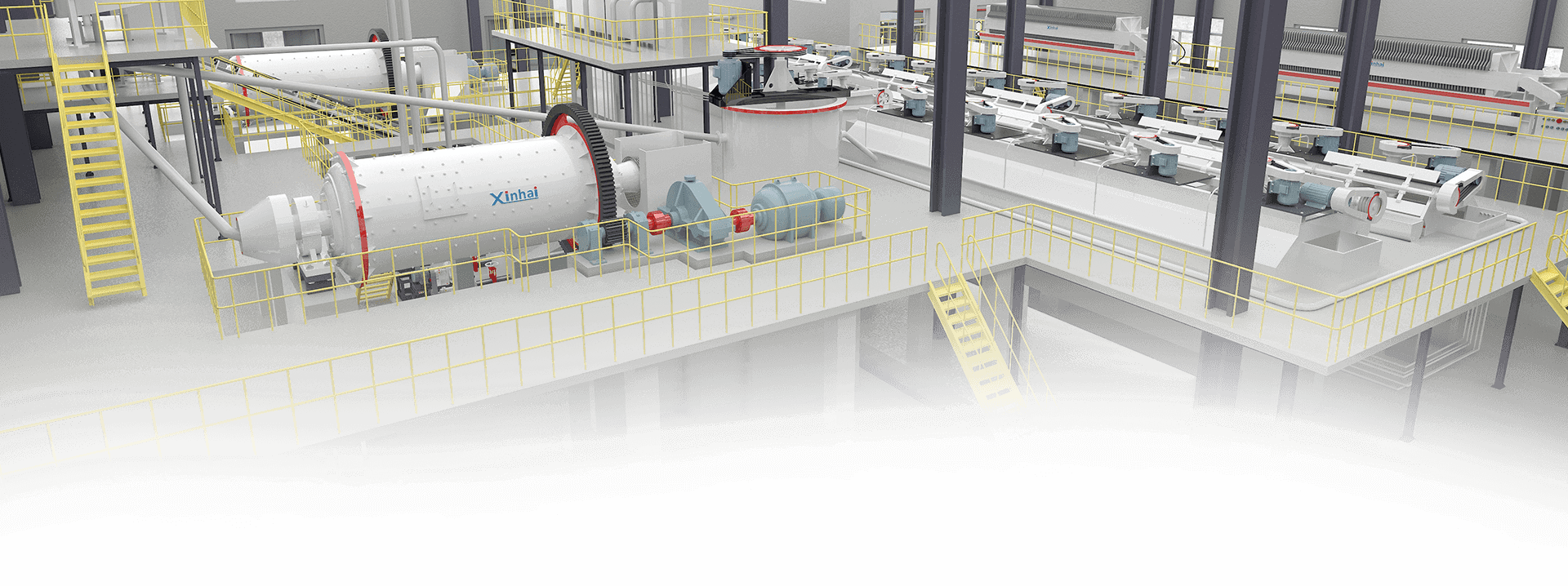
 Message
Message Chat Now
Chat Now


